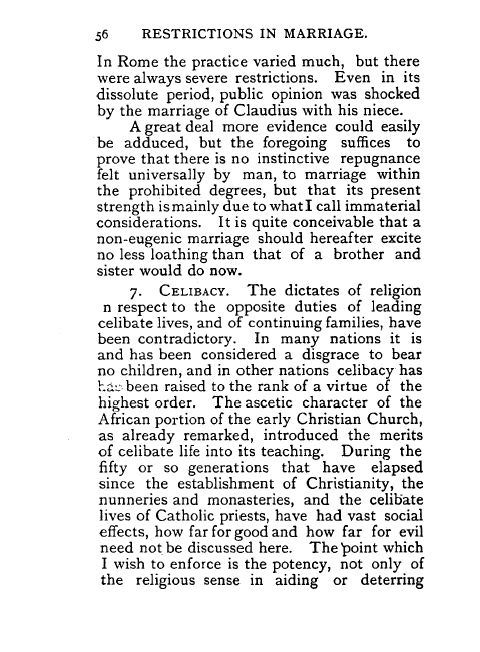56 RESTRICTIONS IN MARRIAGE.
In Rome the practice varied much, but there were always severe restrictions. Even in its dissolute period, public opinion was shocked by the marriage of Claudius with his niece.
A great deal more evidence could easily be adduced, but the foregoing suffices to prove that there is no instinctive repugnance felt universally by man, to marriage within the prohibited degrees, but that its present strength is mainly due to what I call immaterial considerations. It is quite conceivable that a non-eugenic marriage should hereafter excite no less loathing than that of a brother and sister would do now.
7. CELIBACY. The dictates of religion
n respect to the opposite duties of leading celibate lives, and of continuing families, have been contradictory. In many nations it is and has been considered a disgrace to bear no children, and in other nations celibacy has ;:been raised to the rank of a virtue of the highest order. The ascetic character of the African portion of the early Christian Church, as already remarked, introduced the merits of celibate life into its teaching. During the fifty or so generations that have elapsed since the establishment of Christianity, the nunneries and monasteries, and the celibate lives of Catholic priests, have had vast social effects, how far for good and how far for evil need not be discussed here. The 'point which
I wish to enforce is the potency, not only of the religious sense in aiding or deterring

